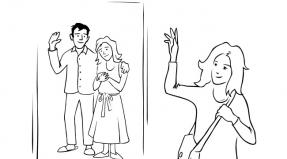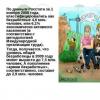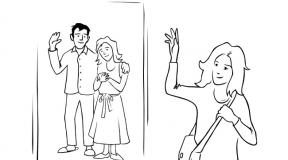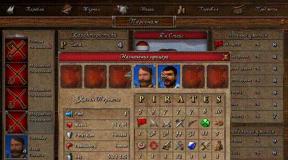I wish в английском языке. Предложения с I wish в английском языке (Wishes) Wishes в английском языке упражнения
Например. If you (to be) free, I (to come) to see you.
If you are free, I shall come to see you.
If you were free, I should come to see you.
If you had been free, I should have come to see you.
If I (to see) her, I (to be) glad.
If I see her, I shall be glad.
If I saw her, I should be glad.
If I had seen her, I should have been glad.
1. If you (to be) busy, I (to leave) you alone. 2. If my friend (to come) to see me, I (to be) very glad. 3. If mother (to buy) a cake, we (to have) a very nice tea party. 4. If we (to receive) a telegram from him, we (not to worry). 5. If you (not to work) systematically, you (to fail) the exam. 6. If I (to live) in Moscow, I (to visit) the Tretyakov Gallery every year. 7. If I (to get) a ticket, I (to go) to the Philharmonic. 8. If I (to live) near a wood, I (to gather) a lot of mushrooms. 9. If my father (to return) early, we (to watch) TV together. 10. If she (to know) English, she (to try) to enter the university.
Answers: 1.1)If you are busy, I shall leave you alone. 2) If you were busy, I should leave you alone. 3)If you had been busy, I should have left you alone. 2. 1) If my friend comes to see me, I shall be very glad. — Если друг придет, я буду рад. 2) If my friend came to see me, I should be very glad. — Если бы друг пришёл, я был бы рад. (мечта) 3) If my friend had come to see me, I should have been very glad. — Если бы друг пришёл (но он не пришел), я был бы рад. (сожаление) 3. 1) If mother buys a cake, we shall have a very nice tea party. 2) If mother bought a cake, we should have a very nice tea party. 3) If mother had bought a cake, we should have had a very nice tea party. 4. 1) If we receive a telegram from him, we shall not worry. 2) If we received a telegram from him, we should not worry. 3)If we had received a telegram from him, we should not have worried. 5. 1)If you don’t work systematically, you will fail the exam. 2) If you did not work systematically, you would fail the exam. 3)If you had not worked systematically, you would have failed the exam. 6. 1)If I live in Moscow, I shall visit the Tretyakov Gallery every year. 2) If I lived in Moscow, I should visit the Tretyakov Gallery every year. 3) If I had lived in Moscow, I should have visited the Tretyakov Gallery every year. 7. 1) If I get a ticket, I shall go to the Philharmonic. 2) If I got a ticket, I should go to the Philharmonic. 3) If I had got a ticket, I should have gone to the Philharmonic. 8. 1) If I live near a wood, I shall gather a lot of mushrooms. 2) If I lived near a wood, I should gather a lot of mushrooms. 3) If I had lived near a wood, I should have gathered a lot of mushrooms. 9. 1) If my father returns early, we shall watch TV together. 2) If my father returned early, we should watch TV together. 3) If my father had returned early, we should have watched TV together. 10. 1) If she knows English, she will try to enter the university. 2) If she knew English, she would try to enter the university. 3) If she had known English, she would have tried to enter the university.
Exercise 2. Перепишите каждое из следующих предложений дважды, образуя предложения нереального условия: a) относящиеся к настоящему или будущему (II тип); b) относящиеся к прошедшему (III тип).

1. If I am not too busy, I shall go to the concert. 2. They will all be surprised if I make such a mistake. 3. If he doesn’t come in time, shall we have to wait for him? 4. If no one comes to help, we shall be . obliged to do the work ourselves. 5. If you put on your glasses, you will see better. 6. What shall we do if they are late? 7. Will you be very angry if we don’t come? 8. Will he be very displeased if I don’t ring him up?
Answers: 1.1)I were not too busy, I should go to the concert.2) If I had not been too busy, I should have gone to the concert. 2. 1) They would all be surprised if I made such a mistake. 2)They would all have been very surprised if I had made such a mistake. 3. 1)If he didn’t come in time, should we have to wait for him? 2) If he hadn’t come in time, should we have had to wait for him? 4. 1) If no one came to help, we should be obliged to do the work ourselves. 2) If no one had come to help, we should have been obliged to do the work ourselves. 5. 1)If you put on your glasses, you would see better. 2)f you had put on your glasses, you would have seen better. 6. 1)What should we do if they were late? 2) What should we have done if they had been late? 7. 1)Would you be very angry if we didn’t come? 2) Would you have been very angry if we hadn’t come? 8. 1)Would he be very displeased if I didn’t ring him up? 2) Would he have been very displeased if I hadn’t rung him up?
Exercise 3. Раскройте скобки, употребляя глаголы в требующейся форме.

1. If he were not such an outstanding actor, he (not to have) so many admirers. 2. If you (to give) me your address, I shall write you a letter. 3. If she (not to be) so absent-minded, she would be a much better student. 4. If my sister does not go to the south, we (to spend) the summer in St. Petersburg together. 5. If they (not to go) to Moscow last year, they would not have heard that famous musician. 6. If you (not to get) tickets for the Philharmonic, we shall stay at home. 7. If you were not so careless about your health, you (to consult) the doctor. 8. I should be delighted if I (to have) such a beautiful fur coat. 9. If it (to rain), we shall have to stay at home. 10. If he (to work) hard, he would have achieved great progress. 11. If it is not too cold, I (not to put) on my coat. 12. I (to write) the composition long ago if you had not disturbed me. 13. If he (not to read) so much, he would not be so clever. 14. If my friend (to be) at home, he will tell us what to do.
Answers: 1. He would not have. 2. You give. 3. She were not. 4. We shall spend. 5. They had not gone. 6. You don’t get. 7. You would consult. 8. I had. 9. It rains. 10. He had worked. 11. I shall not put. 12. I should have written. 13. He did not read. 14. My friend is.
Exercise 4. Образуйте условные предложения.

1. Не is busy and does not come to see us. If … 2. The girl did not study well last year and received bad marks. If … 3. He broke his bicycle and so he did not go to the country. If … 4. He speaks English badly: he has no practice. If … 5. I had a bad headache yesterday, that’s why I did not come to see you. If … 6. The ship was sailing near the coast, that’s why it struck a rock. If … 7. He was not in town, therefore he was not present at our meeting. If … 8. The pavement was so slippery that I fell and hurt my leg. If … 9. The sea is rough, and we cannot sail to the island. If … 10. They made a fire, and the frightened wolves ran away. If … 11. It is late, and I have to go home. If … 12. I was expecting my friend to come, that’s why I could not go to the cinema with you. If … 13. He always gets top marks in mathematics because it is his favourite subject and he works a lot at it. If … 14. I did not translate the article yesterday because I had no dictionary. If … 15. We lost our way because the night was pitch-dark. If … 16. The box was so heavy that I could not carry it. That’s why I took a taxi. If …
Answers: 1. If he were not busy, he would come to see us. 2. If the girl had studied well last year, she would not have received bad marks. 3. If he had not broken his bicycle, he would have gone to the country. 4. If he had (more) practice, he would speak English better. 5. If I had not had a bad headache yesterday, I should have come to see you. 6. If the ship had not sailed near the coast, it would not have struck a rock. 7. If he had been in town, he would have been present at our meeting. 8. If the pavement had not been so slippery, I should not have fallen and hurt my leg. 9. If the sea were not (so) rough, we should (could) sail to the island. 10. If they had not made a fire, the wolves would not have run away. 11. If it were not late, I should not have to go home. 12. If I had not expected my friend to come, I should (could) have gone to the cinema with you. 13. If mathematics were not his favourite subject and he did not work a lot at it, he would not always get top marks. 14. If I had had a dictionary, I should have translated the article yesterday. 15. If the night had not been pitch-dark, we should not have lost our way. 16. If the box had not been so heavy, (I could have carried it and) I should not have taken a taxi.
Exercise 5. Раскройте скобки, употребляя требующуюся форму сослагательного наклонения после «I wish».

1. I wish I (to have) a season ticket to the Philharmonic next winter. 2. I wish I (to consult) the teacher when I first felt that mathematics was too difficult for me. 3. I love sunny weather. I wish it (to be) warm and fine all the year round. 4. I wish I (not to lend) Nick my watch: he has broken it.5. I wish you (to send) word as soon as you arrive. 6. I wish I (not to have) to do my homework every day. 7. I wish you (to go) skiing with me yesterday: I had such a good time! 8. I wish I (to know) Spanish. 9. I wish I (not to drink) so much coffee in the evening: I could not sleep half the night. 10. I wish you (to read) more in future. 11. I wish I never (to suggest) this idea. 12. I wish I (to be) at yesterday’s party: it must have been very merry. 13. I wish we (to meet) again next summer. 14. Don’t you wish you (to see) that performance before? 15. They wished they (not to see) this horrible scene again. 16. The unfortunate pupil wished he (not to forget) to learn the rule.
Answers: 1. I had. 2. I had consulted. 3. It were. 4. I had not lent. 5. You sent. 6. I did not have. 7. You had gone. 8. I knew. 9. I had not drunk. 10. You read. 11. I had never suggested. 12. I had been. 13. We met. 14. You had seen. 15. They did not see. 16. He had not forgotten.
Exercise 6. Перефразируйте следующие предложения, употребляя «I wish».

E.g. It’s a pity you are ill.
I wish you were not ill.
1. Unfortunately they won’t return before Christmas. 2. The student was sorry he had not studied the material better and had shown such poor knowledge at the exam. 3. It’s a pity that you did not send for us last night. 4. It’s a pity you are not with us these days. 5. My friend regrets not having entered the university. 6. He was sorry not to have had enough time to finish his paper. 7. It’s a pity we shan’t be able to reach home before teatime. 8. I am sorry I made you upset by telling you this news. 9. What a pity you don’t know enough physics.
Answers: 1.I wish they returned before Christmas. 2. The student wished he had studied the material better and shown better knowledge at the exam. 3. I wish you had sent for us last night. 4. I wish you were with us these days. 5. My friend wishes he had entered the university. 6. He wished he had had enough time to finish his paper. 7. I wish we were able to reach home before teatime. 8. I wish I had not made you upset by telling you this news. 9. I wish you knew enough physics.
Exercise 7. Переведите на английский язык, употребляя «I wish».

- 1. а) Жаль, что он такой легкомысленный,
- б) Жаль, что он не достаточно серьезен.
- 2. а) Я теперь жалею, что не послушал его совета,
- б) Я теперь жалею, что последовал его совету.
- 3. а) Жаль, что вы пришли так поздно,
- б) Жаль, что вы не пришли пораньше.
- 4. а) Обидно, что мы ушли до его прихода.
- б) Обидно, что мы не дождались его прихода.
- 5. а) К сожалению, они еще ничего не знают,
- б)К сожалению, они уже знают об этом.
Answers: 1.a) I wish he were not so light-minded. б) I wish he were more serious. 2. a) Now I wish I had listened to his advice (had followed his advice). b) Now I wish I had not followed his advice. 3. a) I wish you had not come so late. б) I wish you had come earlier. 4. a) I wish we had not gone before he came. б) I wish we had waited till he came. 5. a) I wish they knew it already. b) I wish they did not know about it.
Exercise 8. Переведите на английский язык, употребляя «I wish».

1. Ах, если бы вы сказали ей об этом в прошлое воскресенье! 2. Хорошо бы у нас сейчас были каникулы. 3. Если бы он пришел сегодня вечером! 4. Мы пожалели, что не попросили его совета. 5. Жаль, что вы отказались принять участие в пикнике. 6. Жаль, что вас не интересует этот предмет. 7. Мы бы хотели, чтобы вы упомянули эти факты. 8. Жаль, что мы опоздали на поезд. 9. Жаль, что вы включили телевизор так поздно. 10. Если бы я был свободен сейчас! 11. Жаль, что и вчера у меня было мало времени. 12. Хорошо бы вы написали ей об этом сами. 13. Жаль, что вы не обратили внимания на его предупреждение. 14. Он пожалел, что бросил университет. 15. Жаль, что уже поздно идти туда. 16. Ах, если бы я пришел на вокзал вовремя! 17. Жаль, что вы не читали такую прекрасную книгу. 18. Жаль, что она делает так много ошибок в речи. 19. Жаль, что вы не побывали на выставке. 20. Жаль, что я узнал об этом так поздно. 21. Как жаль, что мы не застали Колю дома. 22. Она сожалела, что не рассказала нам эту историю раньше.
Answers: 1. Oh, how I wish you had told her about it last Sunday! 2. I wish we had holidays now. 3. Oh, I wish he came tonight! 4. We wished we had asked his advice. 5. I wish you had not refused to take part in the picnic. 6. I wish you were interested in this subject. 7. We wish you mentioned these facts. 8. I wish we had not missed the train. 9. I wish you had turned on the TV earlier. 10. I wish I were free now! 11. I wish I had had more time yesterday. 12. I wish you wrote her about it yourself. 13. I wish you had paid attention to his warning. 14. He wished he had not left the university. 15. I wish it were not too late to go there. 16. Oh, how I wish I had come to the railway station on time! 17. I wish you had read this wonderful book. 18. I wish she did not make so many mistakes in her speech. 19. I wish you had visited the exhibition. 20. I wish I had learned about it earlier. 21. I wish we had found Nick at home. 22. She wished she had told us this story before.
Обратите внимание на смешанные случаи употребления времен в условных предложениях II и III типа:
If I were acquainted with this famous professor, I should have rung him up yesterday.
Условие относится к настоящему времени (II тип), а следствие - к прошедшему (III тип).
If I had written the composition yesterday, I should be free now.
Условие относится к прошедшему времени (III тип), а следствие - к настоящему (II тип).
Exercise 9. Образуйте условные предложения. Не забудьте о смешанных случаях.

1. I shall go to the dentist because I have a toothache. If … 2. He is groaning with pain now because he did not go to the dentist to have his tooth filled. If … 3. She does not go to the polyclinic because she does not need any treatment. If … 4. He will not go to see the play as he was present at the dress rehearsal. If … 5. He went to Moscow specially to hear this famous singer because he is fond of him. If … 6. We did not go to the cafeteria to have a glass of lemonade because we were not thirsty. If … 7. She could not mend her dress herself because she had no needle. If … 8. He is not a first-class sportsman now because he did not train enough last year. If … 9. The pupils were active because they wanted to understand this difficult material. If … 10. The pupils did not understand the homework because they were inattentive. If … 11. The pupils worked hard and did well in their exams. If … 12. She won’t try to enter the foreign languages department because she is not good at foreign languages. If …
Answers: 1. If I did not have a toothache, I should not go to the dentist. 2. If he had gone to the dentist to have his tooth filled, he would not be groaning with pain now. 3. If she needed some treatment, she would go to the polyclinic. 4. If he had not been present at the dress rehearsal, he would go to see the play. 5. If he were not fond of this famous singer, he would not have gone to Moscow specially to hear him. 6. If we had been thirsty, we should have gone to the cafeteria to have a glass of lemonade. 7. If she had had a needle, she would (could) have mended her dress herself. 8. If he had trained enough last year, he would be a first-class sportsman now. 9. If the pupils had not wanted to understand this difficult material, they would not have been so active. 10. If the pupils had been more attentive, they would have understood the homework. 11. If the pupils had not worked hard, they would not have done well in their exams. 12. If she were good at foreign languages, she would try to enter the foreign languages department.
Exercise 10. Переведите на английский язык.

1. Он так изменился! Если бы вы его встретили, вы бы его не узнали. 2. Если бы я был на вашем месте, я бы посоветовался с родителями. 3. Если бы сейчас подошел трамвай, мы бы не опоздали. 4. Если бы он знал, что это вас расстроит, он был бы осторожнее. 5. Если бы вы мне помогли решить эту задачу, я был бы вам очень благодарен. 6. Жаль, что нам раньше не пришло в голову поискать книгу в библиотеке. Мы бы сделали работу вовремя и сейчас были бы уже свободны. 7. Жаль, что у нас было так мало уроков. Если бы мы больше поработали, мы бы лучше знали язык. 8. Если бы он регулярно не посещал спортивные тренировки, он не добился бы такого успеха на состязаниях. 9. Если бы ты предупредил меня заранее, я бы уже был в Москве. 10. Жаль, что она уже ушла. Если бы ты позвонил раньше, она была бы сейчас здесь. 11. Если бы он был умнее, он бы не пошел вчера в лес. 12. Если бы она не прислала вчера это письмо, мой брат был бы сейчас дома. 13. Что бы мы сейчас делали, если бы мама не испекла вчера пирог? 14. Жаль, что вы не слышали музыку Рахманинова. Если бы вы ее слышали, вы бы знали, какой это замечательный композитор. 15. Я уверен, что все были бы рады, если бы вечер состоялся.
Answers: 1. He has changed so much! If you met him, you would not recognize him. 2. If I were you, I should consult my parents. 3. If a tram came now, we should not be late. 4. If he had known that this would upset you, he would have been more careful. 5. If you helped me to solve this problem, I should be very grateful to you. 6. I wish it had occurred to us before to look for the book in the library. We should have done the work in time and now we should be free, 7. I wish we had had more lessons. If we had worked more, we should know the language better. 8. If he had not attended sports trainings regularly, he would not have achieved such success in the competitions. 9. If you had warned me before, I should already be in Moscow. 10. I wish she had not gone. If you had called before, she would be here now. 11. If he were cleverer, he would not have gone to the wood yesterday. 12. If she had not sent this letter yesterday, my brother would be at home now. 13. What should we be doing now if mother had not baked a pie yesterday? 14. I wish you had heard Rakhmaninov’s music. If you had heard it, you would know what a wonderful composer he was. 15. I am sure that everybody would be glad if the party took place.
Помните песню Pink Floyd - I Wish You Were Here? Как бы вы это перевели? Предложите свои варианты?
«Как бы я хотел, чтобы ты была здесь!» (но она, очевидно, не здесь).
Итак, сегодня поговорим про сожаления, выражаемые конструкциями I wish / If only.
Что выражает данная конструкция?
Разница употребления данных конструкций состоит в том, что If only является более эмоционально выразительным, чем wish , но разницы в построении предложения нет.
Что такое wish? Вообще этот переводится «желать». То есть мы часто говорим:
I wish you good luck, I wish you happiness. - Я желаю тебе удачи. Я желаю тебе счастья.
Но очень часто этот глагол используется, когда мы сожалеем о том, что происходит не так сейчас, в прошлом или будущем.
Основной принцип в том, что в таких предложениях, как и в нереальный условных, мы идём на шаг назад во времени и меняем положительную форму на отрицательную, отрицательную на положительную.
Сравните:
Факт: I don’t speak French, so I won’t talk to him. - Я не говорю по-французски, поэтому я не поговорю с ним.
Условное с if : If I spoke French, I would talk to him! - нереальное условное второе, про действия в настоящем.
Сожаления о нереальном настоящем c wish:
I wish I spoke French. - Жаль, что я не говорю по-французски (в настоящем). Или более дословный перевод - Я желала бы, чтоб я говорила по-французски.
Как изменяется по временам?
Рассмотрим разные сожаления в разных временах:
- Выражая сожаление о том, что говорящего что-нибудь не устраивает в настоящем или он желает, чтоб все было иначе, необходимо использовать или (чаще всего в таких предложениях глагол was заменяют на were).
He wishes he earned more. - Ах, если бы он зарабатывал больше. (But he doesn’t earn much now. - Но он не зарабатывает много сейчас.)
I wish it was not drizzling . - Жаль, что моросит дождь. (Я бы хотел, чтоб он не моросил сейчас).
I wish I were a millionaire. - Я хотел бы быть миллионером.
If only they won a match. - Ах, если бы они выиграли матч.
If only you gave up smoking. - Ах, если бы ты бросил курить.
- Если нужно выразить сожаление о случившихся или не произошедших действиях в прошлом , необходимо использовать Past Perfect or Past Perfect Continuous.
She wishes she had not been driving so fast. - Она сожалеет, что ехала так быстро.
We wish we had not left a key at home. - Ах, если бы мы не забыли ключи дома.
If only I had prepared more properly. - Жаль, что я не подготовился лучше.
If only the car had not broken down. - Жаль, что машина поломалась.
- Так же возможно употребление глагола would после данных конструкций:
- при желании высказать просьбу;
I wish you would help me. - Ах, если бы ты мне помог.
If only you would bring me a cup of hot tea. - Ах, если бы ты принес мне чашку горячего чая.
- в случае желания высказать недовольство, изменить ситуацию или поведение , но это сделать практически невозможно (для местоимений I и we используется глагол could);
He wishes he would stop using drugs. - Жаль, что он не может прекратить принимать наркотики.
I wish my parents would be younger. - Ах, если бы мои родители были моложе.
I wish I could change the weather. - Я бы хотел поменять погоду (но я не могу этого сделать).
If only they would give me my money back. - Ах, если бы они вернули мне деньги (но я не верю в это).
If only we could speak Japanese. - Жаль, что мы не говорим по-японски.
- Can в конструкциях с I wish меняется на couldn’t; сan’t на could.
I can’t swim. I wish I could . - Я не умею плавать. Хотелось бы, чтоб умел.
He can come to the party. I wish he couldn’t . - Он может прийти на вечеринку. Хотелось бы, чтоб не мог.
А как же быть, если предложение прошедшего времени с формой could / couldn ’ t ?
В таком случае в конструкциях I wish/if only будет форма could have done :
I couldn’t visit that city with you. I wish I could have visited it. - Я не мог посетить тот город с тобой. Жаль, что не мог.
Основной особенностью является перевод данных конструкций. Чаще всего используют такие варианты: «Ах, если бы…», «Жаль, что…» или «Я бы хотел/желал…», но есть и другие варианты. Возможно также переводить данные предложения используя (сложное дополнение):
I wish you sent me the letter. = I want you to send me the letter. = Я бы хотел, чтобы ты отправил мне письмо.
Прочитав предыдущие примеры стоить выделить очень важную особенность: при переводе утверждение необходимо поменять на отрицание и наоборот .
She wishes she had not stolen a purse. - Она сожалеет, что украла сумочку.
If only they were present. - Жаль, что они не придут.
Именно использование конструкций I wish/ If only для выражения сожаления делает разговор более красочным и приближенным к аутентичному, поэтому если свести правило к мини-таблице, оно с легкостью запоминается.
Как мы уже знаем, в грамматике английского языка существует много особых ситуаций и исключений. И наша сегодняшняя тема как раз отдельный случай. Казалось бы, условные предложения в английской речи имеют так много вариантов построения, что невозможно представить еще хотя бы один. А он есть, и является особым видом предложений, имеющих сослагательное наклонение и свои правила построения. Итак, сегодня мы постараемся разобраться в том, как составляют предложения с I wish, что такие выражения обозначают и в каких случаях используются.
Зачем нужна конструкция I wish?
Употребляя в речи выражения сослагательного наклонения, говорящий стремится рассказать о своем желании или предположении в отношении каких-либо действий. Например, я хотел бы быть сейчас свободным (но не могу) . Это и есть практически те самые предложения с конструкцией I wish, однако они имеют свой особый смысловой контекст.
Само выражение I wish в основном значении схоже с фразами вида I want to , I would like to , что переводится как «я желаю, я хочу, я хотел бы ». Но, комбинации с wish употребляют преимущественно тогда, когда эти пожелания не реальны, не могут быть выполнены по различным причинам. Так, английский пример «I wish I were free now », русский перевод «Жаль, что я сейчас не свободе н» или «Я хотел бы быть сейчас свободным » (но все понимают, что это невыполнимо).
Иными словами, предложения с I wish – это выражение каких-либо желаний, практически мечтаний, с акцентом сожаления на том, что они, скорее всего, не выполнимы сейчас/в будущем, или не были исполнены когда-то давно. Русские эквиваленты – жаль, что это не так; хотелось бы…, но увы.
Грамматически, предложения с условной фразой I wish в английском языке считаются условными, и содержат в себе 2 части: главную и придаточную, в которой и заложен весь смысл высказывания. В первой части на место I может быть поставлено любое личное местоимение you , we , she и т.д. Употребляются такие выражения в разных временных формах, о системе которых поговорим в следующем разделе.
Предложения с I wish в различных временах
С I wish в английском языке мы можем выразить сожаление как по поводу прошедших событий, так и в случае, если они идут в данный момент или свершаться в будущем. Соответственно, английская грамматика содержит 2 варианта их построения:
- Если мы сожалеем о чем-либо, что происходит сейчас или случиться в ближайшем будущем, то ставим глагол после wish в , иногда в Past Continuous .
- Если речь идет о действии, которое произошло в далеком прошлом, сказуемое придаточного предложения стоит в Past Perfect.
Рассмотрим примеры использования подобных фраз в различных ситуациях.
| Время глагола | Значение | Пример | Перевод |
| Past Simple | Сожаление о невыполненных действиях, не произошедших событиях в настоящем (редко в будущем) времени. | I wish you studied the English language. | Мне жаль, что ты не учишь английский язык. /Хотел бы я, чтобы ты учил английский (но ты не учишь). |
| I wish I knew the answer. | Хотел бы я знать ответ (но не знаю). / Жаль, что я не знаю ответа на это. | ||
| Past Continuous | Сожаление о событиях, которые происходят прямо сейчас или постоянно, периодически (в негативном смысле). Редко употребляется в Будущем времени. | I wish she weren’t always telling me about her problems. | Я бы хотел, чтобы она не рассказывала мне постоянно о своих проблемах (а она рассказывает). / Жаль, что она постоянно рассказывает мне о своих проблемах. |
| I wish it were snowing now. | Жаль, что сейчас не идет снег. / Я бы хотел, чтобы сейчас падал снег(но он не падает). | ||
| Past Perfect | Сожаление о давно совершенных действиях, прошедших событиях. Сожаление к тому, что получилось именно так, а не иначе. | I wished I had known it before. | Я сожалел , что я не знал этого раньше. /Мне было жаль, я хотел бы знать это раньше (но не знал). |
| She wishes she had worked on that day. | Хотела бы она работать в тот день (но она не работала)./ Ей жаль , что она не работала в тот день. |
Грамматические замечания: глагол to be в придаточных предложениях с wish всегда имеет форму were , независимо от того, о каком именно лице идет речь (я, мы, ты, он и т.д. ): I wish my mother were here . Это правило распространяется на предложения wish past simple и wish past continuous.
Второй важный момент относится к переводу конструкций на русский язык. Если в предложении сказуемое придаточного стоит в отрицательной форме, то с оборотом «жаль, … » мы его переводим в утвердительной форме: I wish you didn ’t spend so much money on cosmetics (Жаль, что ты тратишь столько денег на косметику ).
Правило справедливо и в обратном отношении: I wish I had 5 dollars (Жаль, что у меня нет пяти долларов ). Обороты «я бы хотел…» и «хотелось бы… » не требуют изменения формы сказуемого: I wish I spoke English (Я хотел бы говорить на английском (но не говорю ).
Wish конструкции с модальными глаголами
В словосочетаниях вида «wish +мод.гл.+сказуемое », модальный глагол всегда стоит в форме прошедшего времени. Сказуемое при этом может употребляться в виде инфинитива или глагольных форм группы времен Past.
| Конструкция | Значение | Пример | Перевод |
| I wish could + глагол в нач. форме | Желание чтобы что-то совершилось в будущем, но маловероятно, что это получится. | He wishes he could fix his bike. | Он хотел бы суметь починить свой велосипед (но вряд ли сумеет). / Ему жаль, что он не сможет починить свой велосипед. |
| How I wish I could play the guitar! | Как бы я хотел уметь играть на гитаре (но не умею)! / Вот жаль, что я не умею играть на гитаре! | ||
| I wish could +have + гл. форма прошедшего времени | Сожаление об утерянной в прошлом возможности что-либо совершить, сделать, изменить. | We wish we could have helped her. | Мы смогли бы помочь ей (но не имели возможности). / Нам жаль, что мы не смогли ей помочь (не было возможности). |
| I wish I could have been at the concert. | Мне жаль, что я не смог побывать на этом концерте (не имел возможности). / Хотелось бы, чтобы я смог посетить этот концерт, но не было возможности. | ||
| I wish would + инфинитив | Негативное отношение к каким-либо действиям, событиям; желание изменить их в будущем. НЕ сожаление , а недовольство, неприятие, раздраженность. | I wish you would stop writing to me! | Когда же ты прекратишь писать мне! / можно сказать: Жаль, что ты не прекращаешь писать мне. |
| I wish it would stop snowing. | Когда же закончится снег. / Жаль, что снег не заканчивается . |
Итак, мы завершили тему условных предложений с конструкцией «I wish ». Обратите особое внимание, что эти правила распространяются только на условные предложения и сослагательное наклонение, потому что употребление wish также возможно в предложениях других типов наклонения. В таких случаях wish используется в своем прямом значении, а предложения составляются по обычным правилам своего наклонения.
Стоит еще отметить, что конструкцию с I wish часто употребляют в деловом английском языке в качестве замены выражения I want , поскольку она придает речи более официальный и строгий тон. Впрочем, отличить такие конструкции не составит труда, поскольку грамматический состав предложения будет совсем другой.
Просмотры: 534
Перефразируйте предложения по образцу, используя структуру I wish...:
Pattern : I"m sorry I haven"t got a washing machine. - I wish I had a washing machine.
1. I"m sorry I don"t live near my work.
2. I"m sorry our garden doesn"t get any sun.
3. I"m sorry I called him a liar.
4. I"m sorry I don"t know Finnish.
5. I"m sorry I didn"t book a seat.
6. I"m sorry I haven"t got a car.
7. I"m sorry I can"t drive.
8. I"d like Tom to drive more slowly (but I haven"t any great hopes of this).
9. I"d like you to keep quiet. (You"re making so much noise that I can"t think.)
10. I"m sorry that theatre tickets cost so much.
11. It"s a pity that shops here shut on Saturday afternoon.
12. It"s a pity he didn"t work harder during the term.
13. It"s a pity you are going tonight.
14. It"s a pity I haven"t got a work permit.
15. I would like it to stop raining (but I"m not very hopeful).
16. I"d like you to wait for me (even though you are ready to start now).
17. I"m sorry I didn’t bring a map.
18. I"m sorry I left my last job.
19. I"m sorry I didn’t stay in my last job.
20. I"d like him to cut his hair (but I don"t suppose he will).
21. I"d like him to stop smoking in bed (but I haven"t any great hopes).
22. I"m sorry he goes to bed so late.
23. I"m sorry I didn’t know you were coming.
24. I"m sorry you told Jack.
25. I"m sorry I didn’t ask the fishmonger to open these oysters.
26. I"m sorry you aren’t coming with us.
27. I"m sorry you aren’t going to a job where you could use your English.
28. It"s a pity you didn’t ask him how to get there.
Ответы к упражнению:
- I wish I lived near my work.
- I wish our garden got some sun.
- I wish I hadn"t called him a liar.
- I wish I knew Finnish.
- I wish I had booked a seat.
- I wish I had got a car.
- I wish I could drive.
- I wish Tom would drive more slowly.
- I wish you would keep quiet.
- I wish the theatre tickets didn"t cost so much.
- I wish the shops didn"t shut here on Saturday afternoon.
- I wish he had worked harder during the term.
- I wish you were not going tonight.
- I wish I had got a work permit.
- I wish it would stop raining.
- I wish you would wait for me.
- I wish I had brought a map.
- I wish I had not left my last job.
- I wish I had stayed in my last job.
- I wish he would cut his hair.
- I wish they would stop smoking in bed.
- I wish he didn"t go to bed so late.
- I wish I had known you had been coming.
- I wish you had not told Jack.
- I wish you had asked the fishmonger to open these oysters.
- I wish you were coming with us.
- I wish you were going to a job where you could use your English.
- I wish you had asked him how to get there.
MAKING A WISH
(сослагательное наклонение) очень часто встречается как в литературной так и в повседневной речи. В основном, используется с первым лицом (I wish – Мне б хотелось), что, в принципе, логично, т.к. каждый сам отвечает за то, что ему хочется и о чем он сожалеет.
Запомните, что после wish идет прошедшее время , а именно:
Если вы что-то желаете или сожалеете о чем-то в настоящем – в придаточном предложении Past Simple .
Если мечтаете и сожалеете о действиях, совершенных в прошлом – Past Perfect.
А если все ваши мысли устремлены в будущее – в придаточном используйте would/could .
Запомните, что в придаточном предложении вместо WAS с единственным числом, употребляют WERE ! (Хотя в разговорной речи можно услышать и was).
Вспомните песню Бьёнс “If I were a boy” , т.е.:
Следует обратить внимание на то, как может переводиться I wish на русский язык
I WISH YOU WERE HERE — (Как) жаль, что тебя нет здесь.
(Как) мне хотелось бы, чтобы ты был здесь.
Хорошо было бы, чтобы ты был здесь.
Обидно, что тебя нет здесь.
К сожалению, тебя нет здесь.
I wish можно заменить на If only … но тогда, предложение будет очень экспрессивным, и указывать на досаду, сожаление: эх, если б только…что ж я…
|
I
w i s h |
I were more attentive. Как бы не хотелось быть более внимательной (Жаль, что я невнимательная). It weren’t so hot! Было бы не так жарко! (Жаль, что не прохладно (на улице). You called me more. Мне б хотелось, чтоб ты звонил мне почаще. (Жаль, что ты мне не часто звонишь). Обратите внимание, что на русский можно переводить используя противоположную форму. |
|
|
I
w i s h |
I had married for money, not love Жаль, что я вышла замуж по любви, а не за деньги. I had invited you. Жаль, что я тебя не пригласил. I hadn’t believed him! Жаль, что я ему верила! |
|
|
I could go with you. Жаль, что я не могу пойти с тобой. |
||
|
I
w i s h |
Someone would open the door! Да откройте же наконец дверь! The noise would stop ! Когда же наступит тишина! You would phone back later. Не могли бы вы перезвонить попозже. |
Complains, Annoyance, |
Для закрепления материала, и чтобы предложения с I wish никогда не вызывали у вас затруднений, предлагаем выполнить ряд упражнений.
Внизу приведены ответы.
Желаем, чтоб ваши желания исполнялись и чтоб вы никогда ни о чем не сожалели!
Успехов в изучении английского языка.
Exercises:
I. Add to each of the following a sentence, beginning: “I wish…”. The words in brackets will help you to form your sentences.
- We lost the game yesterday (win).
- I sat at the back of the hall, and couldn’t hear his speech very well (every word).
- The sea is rough, we can’t sail to the island (calm).
- There were no taxis, so I had to walk from the station (find).
- I went to bed very late last night, and I’m half asleep this morning (so late).
- I could only answer three of the questions at the last examination (all of them).
- The box was heavy, I couldn’t carry it (help me).
- My father gave me some good advice, but I didn’t take it (his advice).
- One of my friends went to London for a holiday last summer, but I couldn’t go (with him).
- Why didn’t you watch the cat? It ate all the fish. I’m angry with you (more attentive).
- There was so much noise in the streets last night that I couldn’t sleep well (better).
- The was a very good film on last week, but I didn’t see it (read the program).
- We went for a picnic yesterday, but it rained all the time (so hard).
- I was lazy and wasted my time when I was at school (harder).
- I didn’t understand what he said yesterday (louder).
- This house is very nice and comfortable. I’d like to buy it, but it is very expensive (less expensive).
II. Rewrite the following, using a “wish” construction (phrases in brackets should be omitted).
- I’m sorry I don’t live near my work.
- I’m sorry I don’t know Mary.
- I’m sorry I didn’t book a seat.
- I’m sorry I cannot drive.
- I’d like you to keep quiet (you are making so much noise that I can’t think).
- It’s a pity he didn’t work harder during the term.
- I’m sorry you didn’t see it.
- It’s a pity you’re going tonight.
- I’d like you to wait for me (even though you are ready to start now).
- I’m sorry I didn’t bring a map.
- I’m sorry I didn’t know you were coming.
- I’m sorry I can’t swim.
- I’ sorry you aren’t coming with us.
III. Translate into English.
Жаль, что вы не пришли пораньше.
Мне бы хотелось, чтобы вы еще раз обдумали мое предложение.
Жаль, что вы пришли так поздно.
Я теперь жалею, что последовал его совету.
Обидно, что мы не дождались его прихода.
Жаль, что мы так и не встретились перед отъездом.
Я бы хотел, что бы вы все-таки прочли эту книгу.
Я теперь жалею, что не послушал его совета.
Обидно, что мы ушли до его прихода.
Мне бы хотелось посмотреть этот фильм еще раз.
Лучше бы ты не был так упрям и послушал нас.
Жаль, что он такой легкомысленный.
Жаль, что он не очень серьезен.
К сожалению, она еще ничего не знает.
К сожалению, она уже знает об этом.
Он пожалел, что пришел и привел с собой друга.
Answers:
1. I wish we had won the game.
2. I wish I had heard every word.
3. I wish the sea WERE calm.
4. I wish I had found a taxi.
5. I wish I hadn’t gone so late last night.
6. I wish I had answered all of them.
7. I wish someone had helped me.
8. I wish I had taken his advice.
9. I wish I had gone with him.
10. I wish you had been more attentive.
11. I wish I had slept better.
12. I wish I had read the program.
13. I wish it hadn’t rained so hard.
14. I wish I had studied harder/ I wish I had been studding harder.
15. I wish he had spoken louder/ I wish he had been speaking louder.
16. I wish it WERE less expensive.
1. I wish I lived near my work.
2. I wish I knew Mary.
3. I wish I had booked a seat.
4. I wish I could drive.
5. I wish you would keep quiet.
6. I wish he had worked harder during the term.
7. I wish you had seen it.
8. I wish you weren’t going tonight/ I wish you stayed tonight.
9. I wish you would wait for me.
10. I wish I had brought a map.
11. I wish I had known you were coming.
12. I wish I could swim.
13. I wish you were coming with us.
I wish you had come earlier.
I wish you would think about my offer once more.
I wish you hadn’t come so late.
I wish I hadn’t accepted (followed) his advice.
I wish we had waited/had been waiting for his coming.
I wish we had met/could have met before his leave.
I wish you could read this book.
I wish I had accepted (followed) his advice.
I wish we hadn’t left before his coming.
I wish I could see this movie once more.
I wish you weren’t/hadn’t been so stubborn and followed/listened to our advice.
I wish he weren’t so light-minded.
I wish he were more serious.
I wish she knew about it.
I wish she didn’t know about it.
He wished he hadn’t come and (hadn’t) taken his friend


















